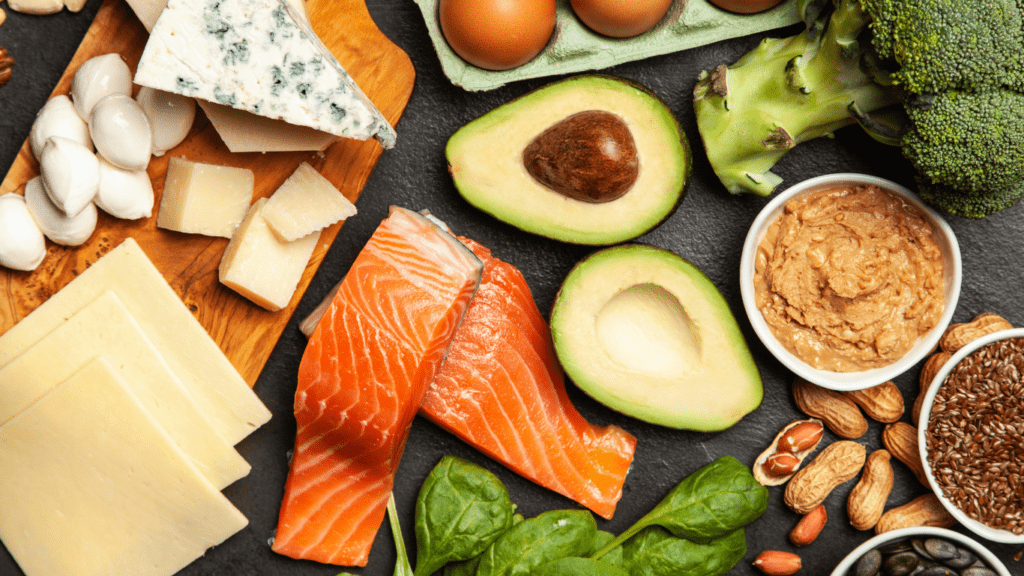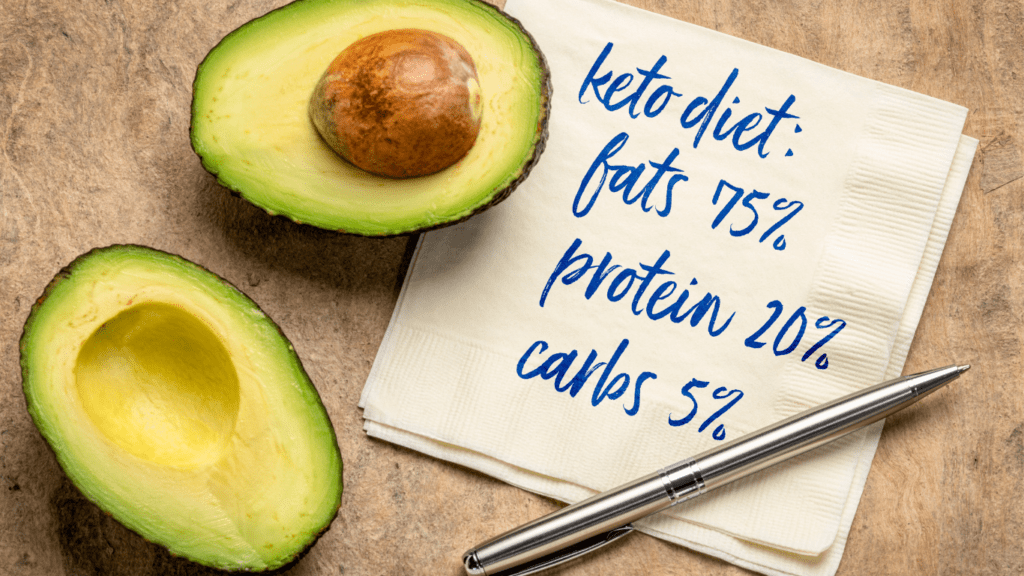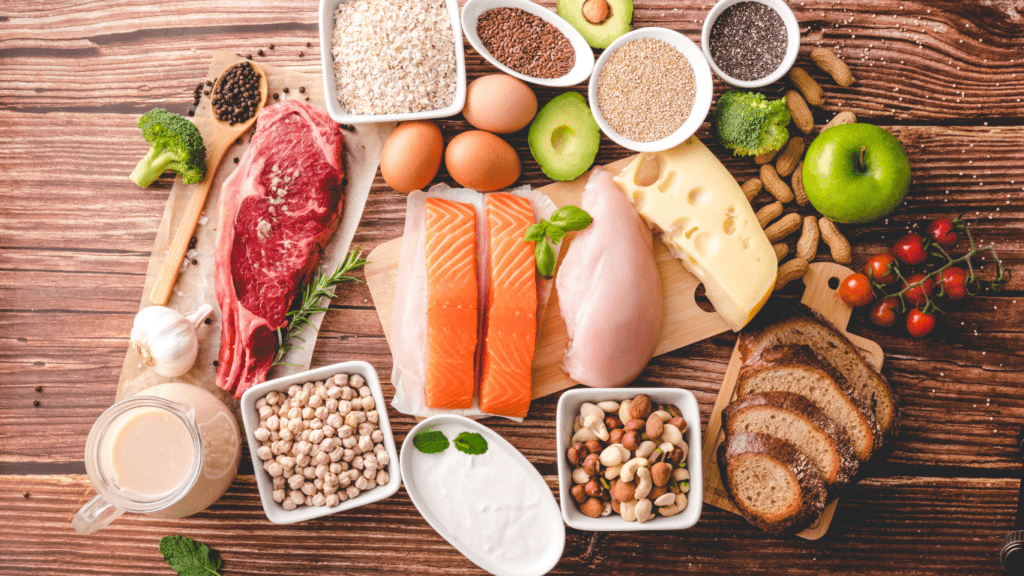Ever feel like your brain’s running on fumes when you need it most? I’ve been there, searching for ways to boost focus, memory, and mental clarity. That’s when I discovered the power of ketogenic strategies and how they can fuel the brain like nothing else. Turns out, what we eat doesn’t just affect our bodies—it plays a massive role in how sharp and productive we feel.
The ketogenic diet isn’t just about weight loss; it’s a game-changer for cognitive performance. By shifting the body to burn fat for energy instead of carbs, the brain gets a steady supply of ketones, its preferred fuel. With the right approach, you can unlock better focus, enhanced memory, and even long-term brain health. Let’s dive into how ketogenic strategies can sharpen your mind and help you perform at your peak.
Understanding Ketogenic Diets
A ketogenic diet focuses on altering the body’s primary energy source by emphasizing fats and limiting carbohydrates. This dietary approach supports cognitive function by supplying ketones, an efficient fuel for the brain.
What Is a Ketogenic Diet?
A ketogenic diet involves consuming high-fat, moderate-protein, and very low-carbohydrate foods. The macronutrient distribution typically consists of 70-80% fats, 10-20% proteins, and 5-10% carbohydrates. By drastically reducing carbohydrate intake to under 50 grams daily, the body enters a metabolic state called ketosis. In ketosis, the liver converts fatty acids into ketones, which replace glucose as the brain’s energy source.
Foods like:
- avocados
- nuts
- seeds
- oils
- fatty fish
- low-carb vegetables
dominate a ketogenic meal plan. Processed foods, grains, starchy vegetables, and sugary products are avoided to maintain low carbohydrate levels.
Historical Background and Scientific Basis
The ketogenic diet originated in the 1920s as a therapeutic intervention for epilepsy. Early research demonstrated its ability to reduce seizure frequency by mimicking fasting-induced metabolic changes. Since then, numerous studies have explored its broader benefits, including cognitive enhancement.
Ketones—beta-hydroxybutyrate, acetoacetate, and acetone—cross the blood-brain barrier, providing a stable energy source and reducing inflammation. Research published in the journal “Frontiers in Aging Neuroscience” links ketones to improved mitochondrial function, which boosts brain energy efficiency and protects against neurodegenerative damage.
The diet’s neuroprotective effects stem from its ability to regulate blood sugar levels, decrease oxidative stress, and enhance brain-derived neurotrophic factor (BDNF). These mechanisms collectively support memory formation, mental clarity, and long-term brain health.
The Link Between Ketosis and Cognitive Optimization

Ketosis supports brain function by altering its energy supply, enhancing cognitive processes. This state leverages ketones as a reliable and efficient fuel source for mental performance.
How Ketosis Impacts Brain Function
- Ketosis directly impacts brain function by providing ketones, an alternative energy source to glucose.
- Ketones, primarily beta-hydroxybutyrate (BHB), cross the blood-brain barrier.
- Once there, they fuel neurons, promoting stable energy availability and reducing oxidative stress.
- This reduces the brain’s susceptibility to energy fluctuations common with glucose metabolism.
- Research highlights that ketones enhance mitochondrial efficiency.
- Through improved ATP production, brain cells maintain optimal performance.
- Additionally, ketosis lowers neuroinflammation by influencing cytokine levels, protecting against conditions like Alzheimer’s or age-related cognitive decline.
Benefits for Focus, Memory, and Mental Clarity
Maintaining ketosis enhances focus by lowering glucose-related energy crashes. A steady ketone supply supports sustained mental activity and minimizes distractions caused by fatigue. This helps improve productivity during cognitively demanding tasks.
Memory benefits from the neuroprotective effects of ketones. Studies link elevated BHB levels to better synapse plasticity and memory consolidation. By stabilizing neural pathways, ketones enable clearer information retrieval.
Mental clarity improves as ketones modulate neurotransmitter function. By increasing gamma-aminobutyric acid (GABA) levels and decreasing glutamate-induced excitotoxicity, ketogenesis promotes a calmer, more focused cognitive state.
Key Ketogenic Strategies for Cognitive Enhancement
Optimizing brain function through ketogenic strategies involves purposeful nutritional adjustments, fasting practices, and supplemental interventions. Each approach contributes uniquely to sustained ketosis and cognitive benefits.
Nutritional Approaches
I prioritize high-fat, low-carb foods to maintain ketosis consistently. Incorporating avocados, olive oil, grass-fed butter, and fatty fish provides essential omega-3 fats, which support brain health. Consuming non-starchy vegetables like spinach and broccoli ensures adequate micronutrient intake without disrupting ketosis. I avoid processed carbohydrates, refined sugars, and trans fats, as these impede cognitive progress and derail ketosis.
Moderating protein intake is essential, as excessive protein can convert to glucose and interrupt ketone production. I balance meals with a macronutrient ratio of 70-80% fats, 10-20% proteins, and 5-10% carbohydrates to sustain energy and focus.
Fasting and Time-Restricted Eating
I integrate fasting protocols to deepen ketosis and elevate cognitive performance. Time-restricted eating, such as a 16:8 fasting schedule, extends the body’s reliance on fat stores for energy, promoting higher ketone levels. Omitting breakfast and consuming meals within an 8-hour window sustains ketone production throughout the day. During fasting periods, hydration with water or electrolytes prevents fatigue and maintains mental clarity.
Longer fasts, such as 24-48 hours, supercharge ketone production by depleting glycogen reserves completely. I use longer fasting durations sparingly, ensuring proper refeeding with ketogenic-friendly foods to support recovery and brain health.
Ketone Supplementation
I enhance ketone availability with exogenous ketones and medium-chain triglycerides (MCTs). Exogenous ketones, such as beta-hydroxybutyrate (BHB) salts, directly elevate blood ketones within minutes. This rapid boost enhances focus and supports cognitive tasks in non-fasting periods. MCT oil, derived from coconut or palm oil, rapidly converts to ketones in the liver, acting as an immediate secondary fuel source.
Combining supplementation with a strict ketogenic diet amplifies cognitive effects. I consume MCT oil in smoothies or coffee for sustained focus and mental clarity during high-demand activities.
Potential Challenges and Considerations
While ketogenic strategies offer cognitive benefits, there are challenges to consider when adopting and sustaining this approach.
Common Pitfalls in Implementing Ketogenic Strategies
Adherence difficulty impacts long-term success for many individuals. Transitioning from a carbohydrate-heavy diet to a high-fat, low-carb regime can be challenging without proper planning. Unclear food choices, hidden carbohydrates, and overly restrictive meal plans often lead to frustration or inconsistent ketosis. Social situations, such as meals with family or friends, can also complicate adherence and increase the likelihood of relapse into high-carb eating patterns.
Overconsumption of protein disrupts ketosis if not managed correctly. Excess protein intake can trigger gluconeogenesis, producing glucose and potentially inhibiting ketone production. This is a common mistake, particularly for those unfamiliar with the specific macronutrient thresholds required for maintaining ketosis.
Nutrient deficiencies arise when staple ketogenic foods fail to cover all essential vitamins and minerals. Restricting certain food groups limits access to nutrients like magnesium, potassium, and fiber, affecting overall health and slowing cognitive progress over time.
Addressing Side Effects and Making Adjustments
Temporary side effects, often termed the “keto flu,” occur during the transition to ketosis. These include fatigue, headaches, dizziness, and irritability as the body adapts to reduced carbohydrate intake. Ensuring adequate hydration and electrolyte balance minimizes these effects.
Digestive issues, like constipation, sometimes arise due to lower fiber consumption. Including fiber-rich, low-carb vegetables like spinach, broccoli, and zucchini can address this problem while maintaining ketosis. Intolerances to high-fat foods, like dairy, also require personalized dietary modifications to prevent discomfort or inflammation.
Fine-tuning macronutrient ratios optimizes cognitive benefits and reduces barriers. Regularly tracking food intake reinforces consistency, while gradually decreasing carbohydrate levels may ease the adjustment period. Incorporating exogenous ketones for certain days can alleviate energy dips and support cognitive performance during challenging transitions.





